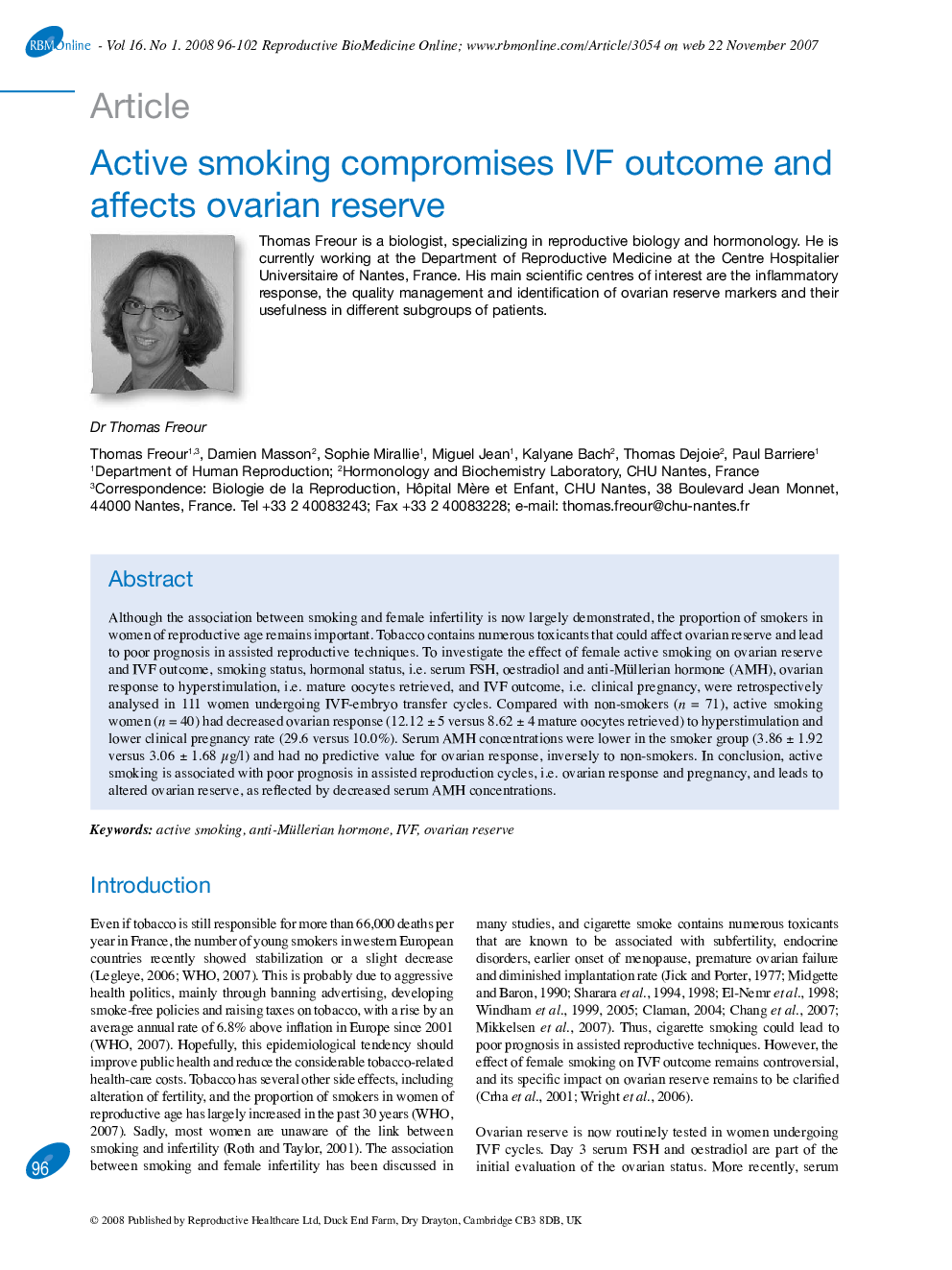| Article ID | Journal | Published Year | Pages | File Type |
|---|---|---|---|---|
| 3972887 | Reproductive BioMedicine Online | 2008 | 7 Pages |
Although the association between smoking and female infertility is now largely demonstrated, the proportion of smokers in women of reproductive age remains important. Tobacco contains numerous toxicants that could affect ovarian reserve and lead to poor prognosis in assisted reproductive techniques. To investigate the effect of female active smoking on ovarian reserve and IVF outcome, smoking status, hormonal status, i.e. serum FSH, oestradiol and anti-Müllerian hormone (AMH), ovarian response to hyperstimulation, i.e. mature oocytes retrieved, and IVF outcome, i.e. clinical pregnancy, were retrospectively analysed in 111 women undergoing IVF-embryo transfer cycles. Compared with non-smokers (n = 71), active smoking women (n = 40) had decreased ovarian response (12.12 ± 5 versus 8.62 ± 4 mature oocytes retrieved) to hyperstimulation and lower clinical pregnancy rate (29.6 versus 10.0%). Serum AMH concentrations were lower in the smoker group (3.86 ± 1.92 versus 3.06 ± 1.68 μg/l) and had no predictive value for ovarian response, inversely to non-smokers. In conclusion, active smoking is associated with poor prognosis in assisted reproduction cycles, i.e. ovarian response and pregnancy, and leads to altered ovarian reserve, as reflected by decreased serum AMH concentrations.
